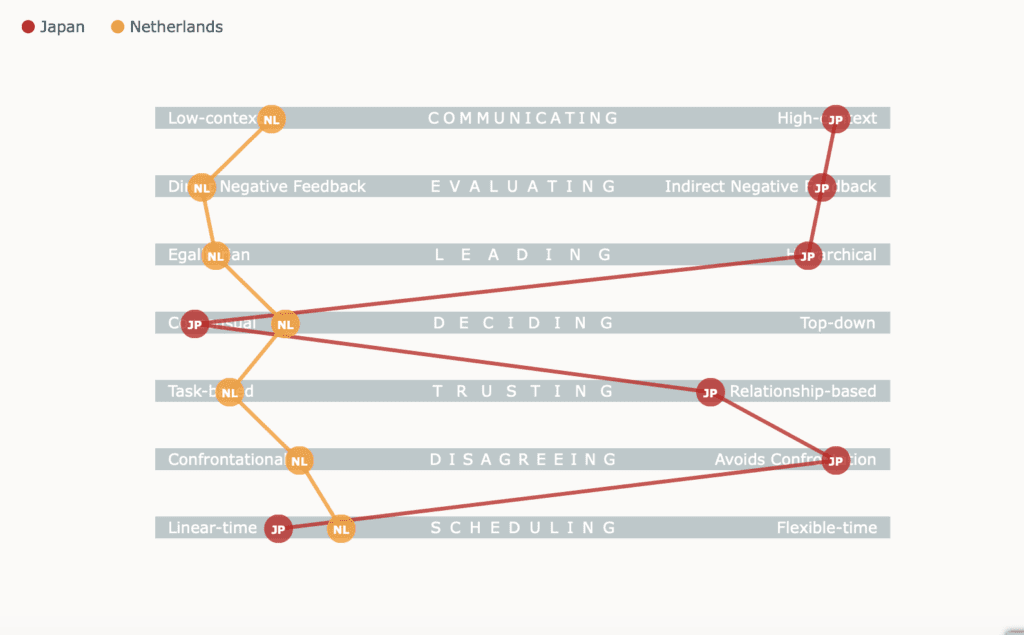We live in a truly global world. Not a day passes where we aren’t in contact with another culture. Whether it is on social media or through entertainment, in the streets, or through our social network – cultural diversity is part of our everyday lives. Knowing how to navigate these global waters has thus become a crucial skill. So let’s discuss what you need to learn in order to become a true cosmopolitan.
The Challenge of Cultural Diversity
Cultural diversity is cool. Visiting other countries and diving into their customs, traditions, and norms is absolutely fascinating. But cultural diversity definitely also includes some challenges. Because we are so embedded in our culture, we sometimes forget that other people have other cultures. We think that our “normal” is everyone’s “normal”. But that’s not the case at all! So increasing our awareness of how our culture shapes us and how other cultures might shape other people is crucial for getting along well with each other. If we just blindly meet people with a different background than us, we are likely to (unwillingly) step on their toes.
But where do we start the aim of our cultural exploration? Erin Meyer has written a fascinating book, The Culture Map, which describes how the world’s different cultures differ in terms of 8 metrics (all of these are mainly work-related):
- Communicating: low-context vs. high-context
- Evaluating: direct negative feedback vs. indirect negative feedback
- Persuading: principles first vs. application first
- Leading: egalitarian vs. hierarchical
- Deciding: consensual vs. top-down
- Trusting: task-based vs. relationship-based
- Disagreeing: confrontational vs. avoids confrontation
- Scheduling: linear time vs. flexible time
Here is what a culture map could look like:

Because of these differences, misunderstandings happen. For example, I come from a very egalitarian culture (Denmark) but worked for a couple of years in Austria, which has a much hierarchical culture than what I’m used to. So I was happily walking around in socks everywhere and saying “du” (impolite “you” in German) to everyone I met. Generally, I was not thinking much about having to communicate a sense of formality, politeness, and hierarchy in anything I did. At the same time, I also learned that Austria has a more flexible sense of time than we have in Denmark.
I was lucky that Moonshot Pirates were very open-minded and accepted my cultural difference. If I had worked for a more conservative company, my behavior would probably have created some tension.
The Opportunity of Cultural Diversity
If there are so many differences between cultures, wouldn’t it make more sense to avoid working together cross-culturally? Well, no. There are so many opportunities of cultural diversity!
- Diversity fuels creativity and innovation. The more different perspectives you include in your brainstorming sessions, the better the final result. This goes for all the creative processes you go through.
- The best of all worlds. Every culture has some good sides and some bad sides. By connecting with other cultures, you learn about the bad sides of your own culture and can include the good sides of theirs.
- Personal development. Connecting with other cultures will give you a lot of personal insight into who you are and how your culture has shaped you. Only then, you can make more mindful decisions about your life.
- Open mind, open heart. Accepting the customs of other cultures will open both your mind and your heart to other people. You will become more empathetic, and this will improve all of your relationships.
And much, much more. It is definitely worth the effort to dive into cultural differences and develop openness and empathy. The first step is always to gain awareness – both of other cultures and your own. Next, turn the awareness into an understanding, mindfulness, and finally, acceptance. And whatever you do – communicate! Explain to people from other cultures how their behavior makes you feel (if you feel uncomfortable or misunderstood in their company). And explain your “normal” to them. This will create a great foundation for your intercultural relationships. If you want to find out more about cultural diversity and what it means to be a Global Citizen, read on here!
Good luck!



